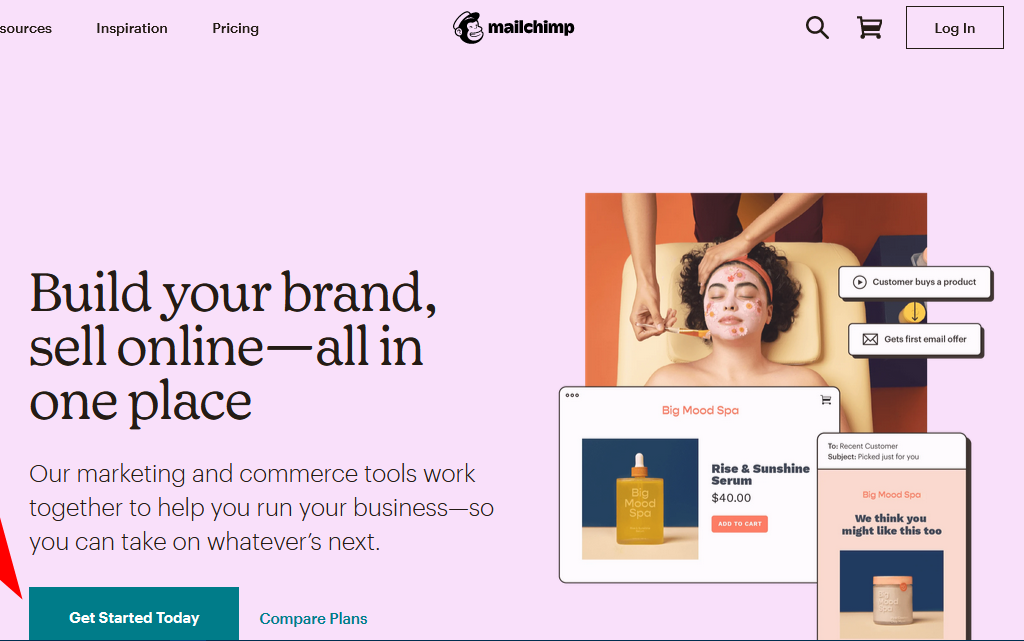Data-driven organizations are always looking for smarter ways to reach their customers. One of the biggest benefits of using big data in 2021 is improving customer engagement.
Online businesses have discovered that big data can be a powerful asset when they want to boost their conversion rates. A good UX design that is predicated on big data is essential to the success of every business online.
It determines the number of people your website will attract or the number of people who want to come back to your website. Research shows that 88% of customers will not return to a website if they had a bad user experience. You need to use detailed analytics tools to see how they respond to figure out if they are having a good experience or not.
This means if your UX design leaves little to be desired, then you run a high chance of losing your customers as a business.
Why does UX design determine the success of every business online? Is it a worthwhile investment? And how can you use data analytics improve your websites’ UX design to succeed as an online business? This article provides answers to these questions.
Let’s start by defining what UX design is and what UX design isn’t.
What is UX design and what role does data analytics play in it?
UX design is a pretty common term thrown around by web designers, digital marketers, software developers and many other digital professionals. However, it’s a term that leaves a lot of people wondering what it entails.
To answer your “what is UX design?” question, here’s our preferred definition.
UX design is short for User Experience design. It is the process of creating digital products that deliver meaningful experiences to users. It is concerned with how real humans interact with a digital product. Data analytics is invaluable for achieving the best possible UX.
The truth is, user experience occurs whether you are consciously creating one or not. As long as you run a website or application and users interact with them, user experience takes place.
Creating a good user experience is a conscious and deliberate effort. You can minimize the time involvement on your end by investing in the right data analytics tools, but you have to know what to look for. So, if you aren’t consciously working on ensuring that everyone who interacts with your website has a pleasant experience, an unpleasant user experience takes place.
A good user experience doesn’t just happen. Data-driven businesses understand that it is a combination of consistent research and efforts driven towards creating experiences your users will enjoy.
It is constantly finding out what your users’ problems are with your website or application and making necessary improvements on your website to solve their problems and create pleasurable experiences.
UX design is user-centric, empathetic, and bears the users’ needs in mind.
Although often confused and used interchangeably, UX design and UI design perform different functions. While UI design is what your website looks like, UX design is how your users feel when they interact with your website.
Why is UX design important for your business?
So many aspects of your business are on the line if you do not invest in an excellent UX design that works to give your customers positive experiences. But why does UX design hold so much power? And how does a good UX design contribute to your business success? Find out below.
1. It creates a good first impression
Did you know that 94% of first impressions are design-related? Your customers may visit your website for the first time because they’ve heard the good news about your business from their friends or through a review from other platforms.
So, they visit your website with high expectations. They imagined shopping on your website seamlessly or finding information on your website without hassle.
But they get to your website, and it’s unresponsive, challenging to navigate, or not mobile-friendly. What do you think their first impression about your business would be? Certainly not a good one.
It doesn’t end there; it affects your chances of ever getting them to revisit your website or recommending your business to anyone else.
Google says 61% of customers are less likely to return to a site if they had challenges accessing it, and 57% would not recommend such business to other users.
However, making your website easily accessible by investing in an effective UX design will create a positive brand reputation. When your visitors visit your website for the first time and find it accessible and enjoyable to navigate, they have a good impression of your business.
They are motivated to patronize your business in the future. You won’t only win them over as customers, but you receive tons of referrals from them because they will be happy to tell people they know about your business.
2. It helps you gain your customers’ loyalty and increase retention
As a business owner who wants to thrive, the goal is never to have one-off purchases with your customers; it is to have consistent and loyal customers who will continually buy from you.
Acquiring new customers costs up to 5 times more than retaining an existing customer. And by retaining 5% of your current customers, you can scale your profits from 25% to 95%.
The way to retain your customers is by keeping them satisfied and happy. A good UX design helps you achieve this by making every experience your customers have with your brand a seamless and pleasant one.
When your customers are satisfied with their experience with your brand, they have no reasons not to come back for more satisfactory experiences. This way, you get to retain them and save big on customer acquisition.
Loyal customers are good for your business. They aren’t just passive buyers who only buy, but they go out of their way to actively promote your business.
They share your business across every platform, and they drop your business’s name at every opportunity they get: while hanging out with their friends, visiting their loved ones, or discussing with their colleagues at work.
In return, your business gets an unpaid promotion, brand awareness, and recognition that increases footprints to your website.
3. It spurs your users to do what you want them to do

Making your customers happy, satisfied, and engaged through UX design is a means to an end; it isn’t the ultimate goal.
You certainly want your customers to be happy and satisfied for a reason. What is this reason? Do you want them to tweet about your website? Fill a form, sign up for your mailing list? Or schedule a call or buy your products?
The list is endless, and the goal of creating a good user experience is unique to every business owner. However, no matter what your goal is, a good UX design helps you achieve your goal. This is because satisfied and happy customers will always be willing to do what you want them to do.
If you want your customers to fill a form, they will do that provided it’s a seamless process. If the goal is to get them to buy from you, a good UX design helps you achieve that by making the shopping experience seamless and enjoyable.
Whatever you want your customers to do on your site, you can get them to do it with a good UX design. The ability to sway your customers positively is one of the ultimate benefits of putting a good UX design in place.
7 Elements of a good UX design
How do you ensure your UX design is effective to drive the right results on your website? Here are seven key factors to look out for:
1. Useful
How relevant is the content on your website? Do they solve your customers’ problems and meet their needs? Your website’s content must be helpful to your users.
Your visitors must be able to perform actions on your sites based on the information on your website. If it’s not useful, then it defeats its purpose.
2. Usable
A good UX design is easy to use. Your visitors should be able to load, click buttons and explore different pages of your website without any fuss.
3. Desirable
How appealing is the look and feel of your website? A good UX design makes your website appealing to your visitors, so they can find it desirable to use.
4. Findable
Your customers should be able to locate your website easily on search engines. They shouldn’t have to go through several pages on the search engine to find your website.
In addition, a good UX design ensures to place information in the right places, so your visitors can find what they are looking for in time on your website.
5. Accessible
A good UX design keeps your website accessible to everyone. It accommodates people with disabilities and different languages. Your website should also be mobile-friendly for people who would access your website through their mobile devices.
6. Credible
All information on your website should be credible. Ensure to confirm every info before you put them on your website. When your customers find your website credible, they will trust you enough to do what you want them to do.
7. Value
Every content on your website must be packed with value for your customers. Your customers should leave your website with their problems solved and new knowledge acquired. Therefore, all your website design and content must be geared towards delivering value to everyone that interacts with your site.
Data Analytics is the Key to Creating a Great UX
A good UX design helps you achieve your goals as an online business. You need the right data analytics tools to make this easier. It attracts and retains customers, increases your brand’s visibility, leads to conversions, and ultimately increases your sales online.
Here, we discussed what UX design is, why UX design is important for every ecommerce business and the seven crucial components of every effective UX design. Consider these factors listed to improve your websites’ UX design for best results.

